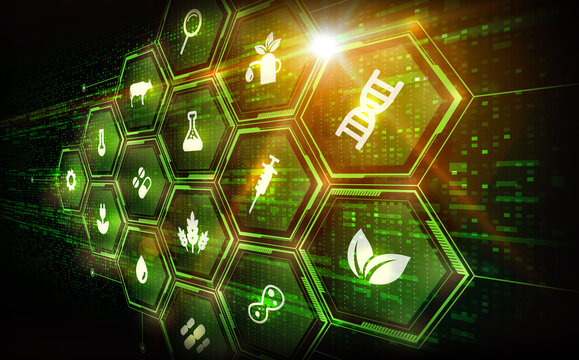Synthetic biology represents a transformative approach to biological engineering, where scientists manipulate biological systems and design new organisms to achieve specific functions or applications. This emerging field combines principles of molecular biology, genetic engineering, and computer science to create synthetic DNA, proteins, and biological circuits with tailored functionalities. In the realm of industrial applications, synthetic biology holds immense promise for revolutionizing sectors such as healthcare, agriculture, energy, and environmental sustainability. This blog explores the principles, applications, benefits, challenges, and ethical considerations of synthetic biology in industrial contexts.
Understanding Synthetic Biology
Synthetic biology involves the design and construction of biological systems or organisms with novel genetic sequences and biological functions. Key components of synthetic biology include:
- DNA Synthesis and Genetic Engineering: Scientists synthesize artificial DNA sequences and modify existing genetic material to create organisms with desired traits, metabolic pathways, or biochemical properties.
- Biological Parts and Circuits: Synthetic biologists design biological components, such as promoters, genes, and regulatory elements, to assemble genetic circuits that perform specific functions, such as biosynthesis of pharmaceuticals or biofuels.
- Computer-Aided Design (CAD) Tools: CAD tools and computational models facilitate the design, simulation, and optimization of genetic constructs and metabolic pathways, accelerating the iterative process of biological design and testing.
Applications of Synthetic Biology in Industry
- Biofuel Production: Synthetic biology enables the engineering of microorganisms, such as algae and bacteria, to produce biofuels like ethanol, biodiesel, and hydrogen through efficient metabolic pathways and enzymatic processes.
- Pharmaceuticals and Biologics: Scientists use synthetic biology to design microbial cell factories for the production of therapeutic proteins, vaccines, and pharmaceutical compounds with improved yield, purity, and cost-effectiveness.
- Agricultural Biotechnology: Genetically engineered crops and agricultural microorganisms enhance crop yields, nutrient uptake, and resistance to pests and environmental stressors, contributing to sustainable agriculture and food security.
- Bioremediation and Environmental Sustainability: Engineered microorganisms and enzymes degrade pollutants, detoxify hazardous chemicals, and remediate contaminated environments, promoting environmental cleanup and sustainability.
- Materials and Chemicals: Synthetic biology techniques produce biomaterials, polymers, and specialty chemicals through microbial fermentation and bioprocessing, reducing reliance on fossil fuels and synthetic chemicals.
Benefits of Synthetic Biology
- Customization and Precision: Synthetic biology offers precise control over biological systems, enabling tailored designs for specific industrial applications, improved product quality, and scalability.
- Sustainable Solutions: Bio-based production methods using renewable feedstocks and eco-friendly processes reduce carbon footprint, minimize waste generation, and support sustainable development goals.
- Innovation and Economic Growth: Synthetic biology drives innovation in biotechnology, stimulates entrepreneurship, and fosters collaborations across academic, industrial, and governmental sectors, catalyzing economic growth and job creation.
- Healthcare Advancements: Engineered microbes produce novel antibiotics, vaccines, and diagnostic tools, addressing global health challenges and enhancing medical treatments through personalized medicine approaches.
Challenges and Considerations
- Biosecurity and Biosafety: Ensuring safe handling, containment, and regulation of genetically modified organisms (GMOs) and synthetic DNA to prevent accidental release or misuse is critical for public health and environmental protection.
- Ethical and Social Implications: Addressing ethical concerns related to genetic manipulation, intellectual property rights, equitable access to biotechnologies, and public perception of GMOs requires transparent communication and ethical guidelines.
- Complexity and Predictability: Designing reliable genetic circuits and metabolic pathways that function predictably under diverse environmental conditions remains a challenge due to biological complexity, genetic interactions, and cellular regulation.
- Regulatory Frameworks: Establishing robust regulatory frameworks for synthetic biology applications, risk assessment protocols, and biosecurity measures to guide responsible research, development, and commercialization efforts.
Synthetic biology holds immense potential for transforming industrial sectors by providing sustainable solutions, innovative products, and biotechnological advancements. As scientific knowledge and technological capabilities in synthetic biology expand, so too will its impact on global industries, environmental stewardship, and human welfare. Embracing interdisciplinary collaborations, ethical considerations, and regulatory frameworks is essential to harnessing the full potential of synthetic biology for industrial applications while ensuring safety, sustainability, and societal benefits in the evolving bioeconomy.
By Our Media Team
Our Editorial team comprises of over 15 highly motivated bunch of individuals, who work tirelessly to get the most sought after curated content for our subscribers.




